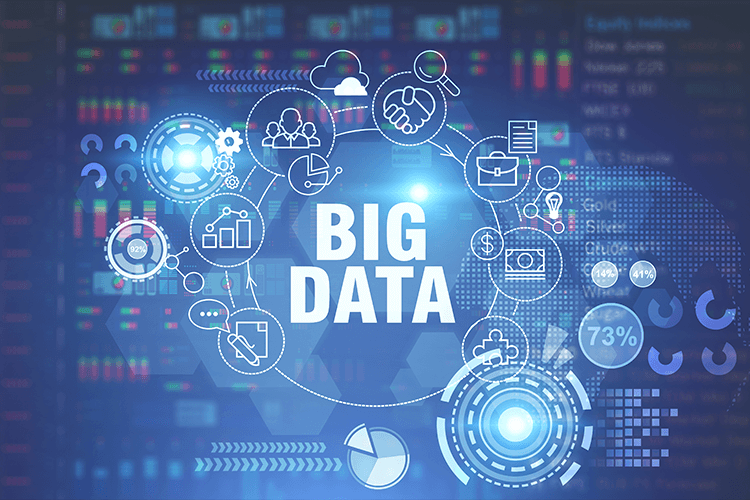How do the use of data and advanced digital advertising technology help us identify the potential of the product market, sales opportunities, and the delivery of an advertising message at the right time, place, and device?

The omniconnected user consumes content through digital channels, thus leaving behind data trails. Increasingly often, they are using online business transactions, while contributing their share to the exponential explosion of data through increased use of mobile devices and portable technology. This is why nowadays, data are more valuable than ever: new technologies and methods make it possible to obtain precise insights into the behaviour of our consumers, to predict further behaviour of consumers, and to discover new marketing opportunities.
For a long time now, consumers in the digital marketing age have been much more than just the basic demographic data stored in a database. It is becoming increasingly difficult to classify consumers into certain predetermined target groups, since their purchasing habits are becoming increasingly less homogeneous. In order to launch successful advertising campaigns, marketing experts must understand the preferences of consumers, and also understand their past behaviour while predicting their future one. Thus, they can provide them with the best possible experience while at the same time influencing their purchasing habits.
Modern marketing places the buyer and his needs into the centre of communication. Good market experts can sometimes discover them intuitively; however, an increasingly common and practically the most efficient approach is the one based on data and smart processing of said data.

From a multitude of data to the identification of new market segments
The web and the digital revolution expanded the availability of data sources. The data collection industry is collecting and interpreting increasingly large quantities of data. Without collecting a multitude of data in order to serve as supporting evidence, everything that you presume about your target audience is just that – a presumption. The goal of analysing all this data is to gain an in-depth understanding of viewpoints and opinions surrounding the product, the industry or the niche market, as well as appropriate functioning based on said data.
Successful companies are already collecting consumer data by using different internal CRM systems or tools, while the most advanced data-driven companies have internal data analytics teams processing information on buyers and companies, monitoring market trends, and providing management with more efficient proposals when it comes to adopting certain decisions.
The traditional route for evaluating the potential of a product on the market is to connect with a research institution which conducts a survey of the panel of consumers in order to collect data and verify the potential of the market, as well as the opportunity for developing an interesting product from the marketing point of view.
By using and analysing advertising data on users of digital media, the potential of the market of the product and the sales opportunity can be identified using data management platforms (DMPs). Such advanced digital advertising technology, namely, makes it possible to use advanced programmatic targeting in order to better understand our target group, while the use of machine learning and advanced algorithms enable us to expand it to consumers who are then delivered important targeted advertising messages at the right time, place, and device.

Predicting consumer behaviour and advanced targeting using advertising content
The predictive modelling method is based on an efficient understanding of the behaviour of existing consumers while identifying new consumer segments; it is based on available consumer data and behavioural patterns of the users of digital media. Based on statistical analyses, algorithms and analytical queries from data sequences, predictive models are created in order to predict the future behaviour of consumers.
With the cluster of obtained and processed data on the behavioural patterns of users, and through advanced software enabling smart data processing, neighbouring target groups are formed and ready to be targeted. The precision of targeting technologies on the basis of predictions is constantly increasing through the use of machine learning; currently, it is predicting target groups with a success rate of 90 per cent.
These data can therefore provide the most efficient lease of media or target audiences and exact planning of campaigns using behavioural targeting and target group expansion.
This method is appropriate when we are addressing a really narrow target group that can be spread out and reacts to extremely specific ads. By using demographic and behavioural patterns and through research conducted in advance, we are able to provide a prediction. In addition, the use of advanced digital advertising technology also enables us to test creative advertising content in real time.

How Argeta successfully discovered and addressed a new segment of buyers
In the framework of an advertising campaign of the Argeta brand entitled “Discover how you like them most” which was awarded the Golden Effie award and was prepared by Luna/TBWA, iPROM created, in cooperation with the Valicon Research Institution, an advertising digital media strategy; in order to reach a narrow target group, we used a combination of predictive modelling based on behavioural patterns and data of the digital media users.
Thus, we designed a predictive model that was integrated into our data managing platform iPROM DMP. It specifically enables us to monitor behavioural patterns of target groups, records data on the advertising campaigns launched in the past, and joins them with data from other business activities of our client. After that, we used iPROM DMP to programmatically target potential consumers by using our technological platform iPROM Cloud. For a more effective targeting, we used predictive advertising based on a previously conducted forecast analysis; by using data, machine learning and statistical algorithms, we identified the future behaviour of consumers. This manner of advanced targeting turned out to be extremely successful, while the advertising action yielded above-average results.
At the end of the advertising campaign, the Valicon Research Institution conducted a survey on the recollection of web ads (Assertion: “I am sure that I have seen web ads”) and found out that the recollection index within a target group was above-average in comparison to others: the index was 300. Usually, a campaign is considered to have a successful recollection within a target group when the index is higher than 150. In addition to successful recollection, the response to advertising with behavioural targeting in combination with predictive modelling in the framework of the iPROM DMP was 35 per cent higher than the one achieved in advertising without targeting. The success of the action also resulted in an increase in sales; after the beginning of the campaign, sales increased fivefold in comparison to the week before the campaign.
We therefore used predictive modelling based on behavioural patterns and periodical collection of data on key parameters for the success of the campaign in real time in order to provide the client with the best and optimised gain of their advertising assets invested.
